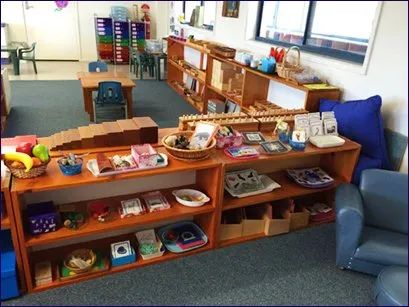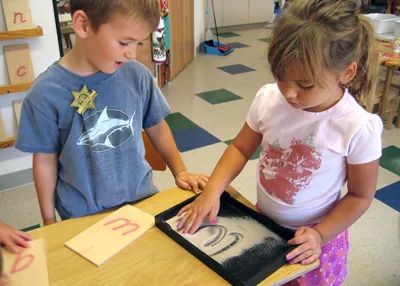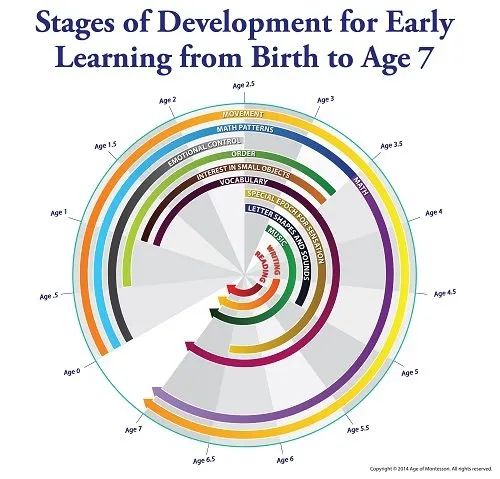Montessori education…what is it really?
I’d like to kick off the new year with a recap of one of our site’s most searched topics of 2016: what exactly IS Montessori? Most people have heard of Montessori, but many don’t have a clear understanding of what it is or how it differs from other educational programs. Misinformation and misrepresentation have muddied the waters of Montessori’s message. Fortunately, Age of Montessori’s founder, Mary Anne Maunz, learned the ropes directly from Dr. Elisabeth Caspari, personal friend and student of Maria Montessori herself. So here are eight fundamental features of authentic Montessori education.
#1 The Environment:

In Montessori classrooms, the environment is “prepared” to meet the students’ developmental needs. Montessori teachers carefully observe, noting each child’s developmental stage and progress, then ensure that the right materials are accessible at the right time. Montessori materials are designed to be beautiful, to attract children to the lessons, and to correspond with the child’s innate, developmental needs. Furniture, tools, and equipment are child-sized to encourage independence.
 #2 Hands-on Learning:
#2 Hands-on Learning:

Montessori lessons are hands-on and active. Children learn by engaging in tasks, completing activities, developing life skills, i.e. moving, doing, and participating. Most lessons are also “self-correcting,” meaning the child can see for himself whether he has mastered it or not. There is no need for the adult to interfere or correct.
#3 Teachers are guides:
Montessori teachers act as guides for the children, moving around the classroom demonstrating lessons or answering questions as needed. They assist each child along his or her own learning path (in contrast to standing in front of the class delivering the same lesson to all students). If a child is concentrating, the teacher does not interrupt assist, correct, or praise.
“Never help a child with a task at which he feels he can succeed.” ~ Maria Montessori
#4 Individualized lessons:
Every child has different interests, strengths, and developmental needs. Given these differences, does it make sense to teach all children the same lesson at the same time? In a Montessori classroom, learning is individualized, in part, through an in-depth understanding of sensitive periods. Sensitive periods are developmental windows of opportunity during which children learn specific concepts more easily and naturally than any other time in their lives. A child in the midst of a sensitive period will show an especially strong interest or inclination toward corresponding activities or lessons.

#5 Child-lead learning:
To allow children to follow their interests and instincts is to maximize the power of the above-mentioned sensitive periods. In the Montessori classroom, children are given the freedom to choose the lessons or activities (from the carefully prepared environment) that interest them the most. This “freedom within limits” also helps children become self-motivated learners.
#6 Independence:
The Montessori classroom is designed to encourage children to be self-motivated and independent. The prepared environment, freedom of choice, and self-correcting materials nurture the child’s sense of accomplishment and confidence. Children work to satisfy their own curiosity and inner need for achievement, and gain genuine inner confidence through their own successes.
#7 Mixed Ages:
In Montessori schools, “grade-levels” are flexible and determined by the child’s developmental stages. In addition to academic and life skills, children grouped in three-year age spans learn social, community, and leadership skills.
#8 For the Love of Learning:
As parents, we all want our children to love learning. Children that learn to be internally motivated are more likely to become responsible, self-disciplined, confident, initiative-takers, with strong academic skills and a love for learning. Authentic Montessori programs are in every respect designed to appeal to the child’s innate hunger for knowledge, to nurture independence, and to instill a lifelong love of learning.

Courses for Parents and Grandparents,
and other resources. Or call us 406 284-2160 today!




















